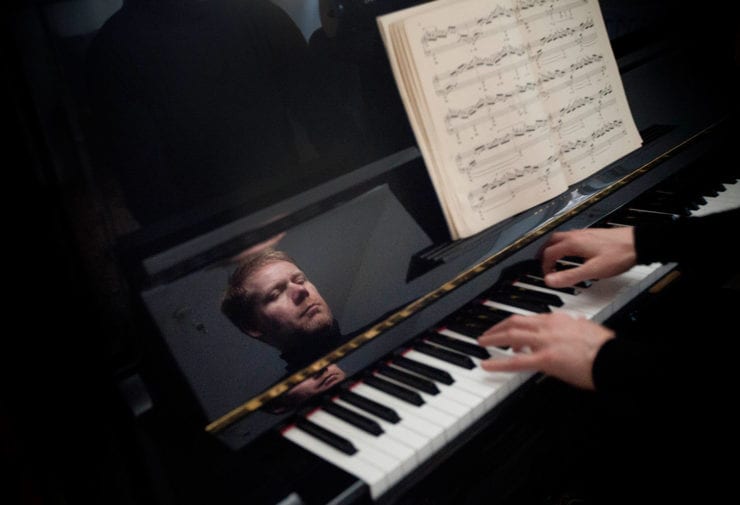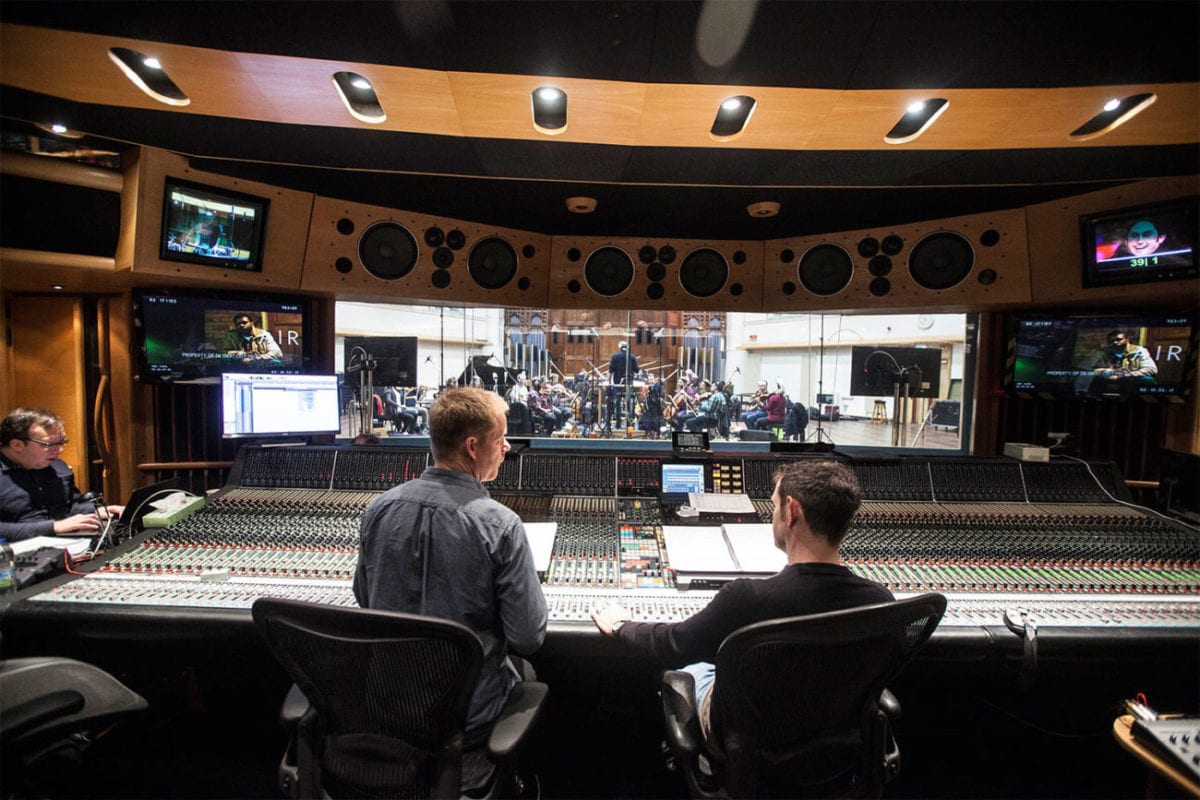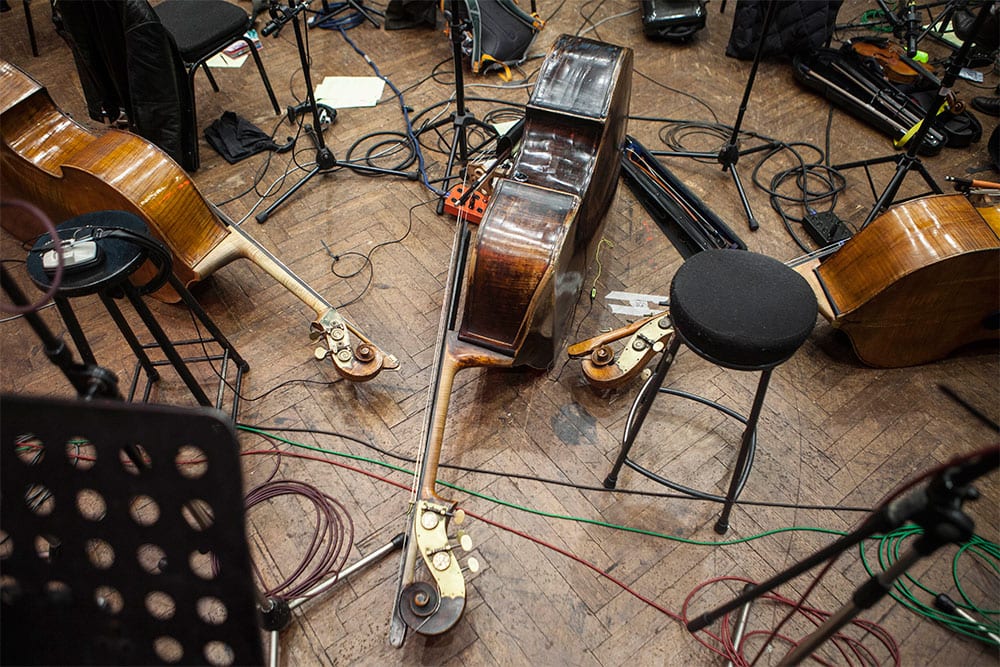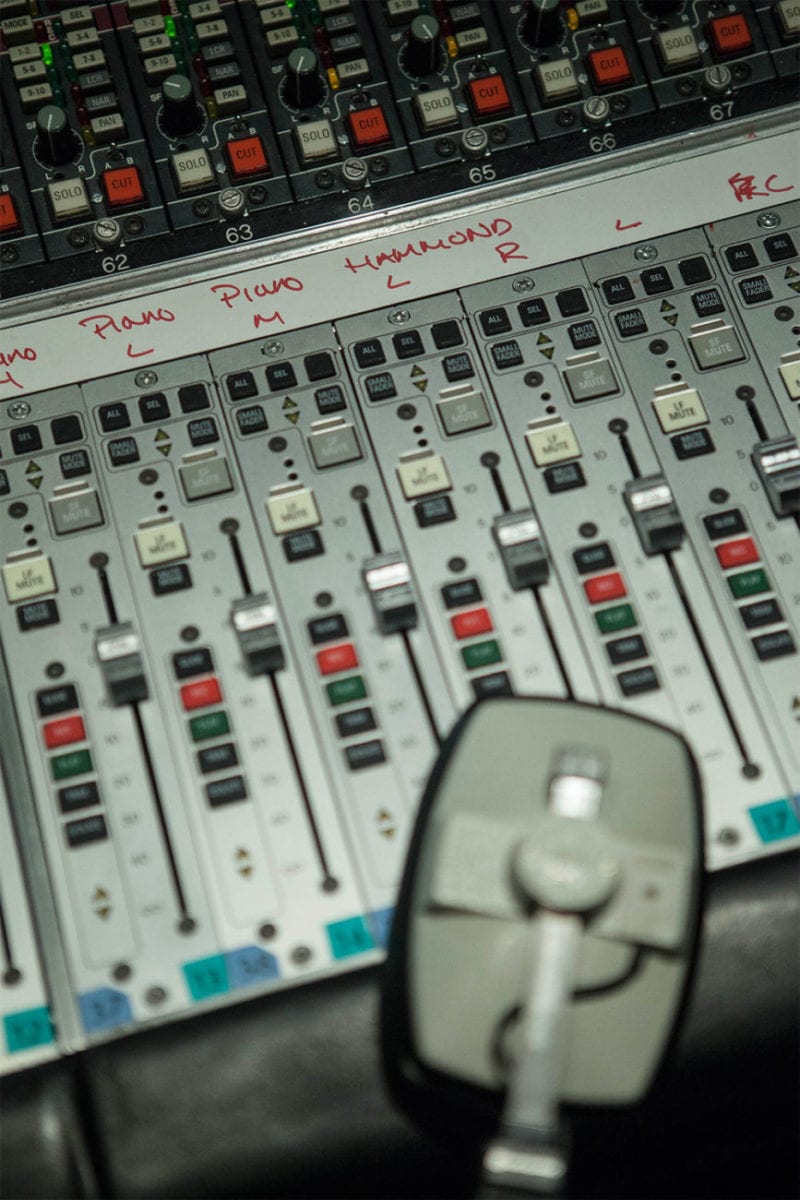
Few artists straddle the classical and contemporary worlds as effortlessly as Max Richter. Alongside genre defining solo albums such as ‘Memoryhouse’ and ‘SLEEP’ he has written extensively for opera, ballet and film adding recent work for ‘Hostiles’ by Scott Cooper, Wayne McGregor’s ‘Woolf Works’ at The Royal Ballet and Black Mirror’s ‘Nosedive’ to an already bulging discography. As prolific as he is obsessed with music, we caught up with Max to discuss his love for electronic music, synthesizers, literature and his recent soundtrack for the film ‘White Boy Rick’.
Interview by Andy Gillham

"There was my life before hearing that and my life after, it was that big an experience for me"
We’ve been loving your White Boy Rick soundtrack here at Inverted Audio – a really interesting mix of classical instrumentation such as piano and strings combined with some pretty epic electronic sounds. Can you tell us a bit about the types of synthesizers and kit you used on the soundtrack?
It’s really a hybrid sound world that score. The traditional instrumentation is piano based with a big string section and also a lot of reeds and Hammond organ giving those gritty, earthy tones.
In terms of synthesizers it’s a real mix. There’s a lot of Prophet 5 on there, Fender Rhodes (not a synthesizer of course!) and a lot of Moog pulses and stuff. I’m very lucky to have a System 55 in the studio which I use.
There are also sounds from the Schmidt which is an amazing 8 voice modular with digi control which is pretty wonderful. There’s a lot of computer processing, production and carving into those sounds too so it’s much more sculptural than traditional instrumentation writing. It was fun!
It’s quite a contrast to the music of the era that the movie is set in (1980’s, Detroit) and that features in the film such as Donna Summer, Afrika Bambaataa and Rammellzee. Was there a decision to incorporate these electronic elements into the score almost as a reflection of the sounds of that era?
That early music is the landscape that the movie is in. In terms of the score there was obviously going to be instrumental and piano music as part of the emotional nature of the story telling. I wanted there to be some sort of connective element between that world and the world of the tracks and that electronic palette just seemed to be able to function as a bridge between those two worlds in a nice way. So that pretty much dictated the kinds of colours that I worked with for the electronics.
The synth arpeggio on ‘Trigger’ sounds like a warped, nightmare version of Donna Summer’s “I Feel Love” for example…
Exactly, that kind of thing.
You are incredibly prolific….what techniques do you use to find the head space to compose so successfully and regularly across such a wide range of projects? Is it tricky, for example, to dive immediately into the ‘mood’ of particular projects such as White Boy Rick or, say, Black Mirror when composing?
Well, the thing is that the projects I take on are just the things that I fall in love with. So I’m not ever doing something that doesn’t get me excited. I take them on because I get excited about them so, in a way, that sort of head space is immediately there because that’s the reason I’m doing them in the first place.
I feel very lucky that I have those sorts of opportunities. I wouldn’t take on a project unless I can get very excited about it. For me, my version of getting excited is that I start thinking about sounds and immediately start thinking about the sorts of colours I want to use. So it’s not like I have to work to have ideas about the project because the reason I do the projects is because they spark ideas.

"My process is more about becoming obsessed with a bit of material and then trying to figure out what the logical shape for that is"
Electronic music has clearly been an influence for you over the years – from collaborating with people like Future Sound of London and Roni Size to inviting artists like JLin to play at your Barbican “Sounds and Visions” shows earlier this year. Can you remember the turning point or piece of music that opened your eyes and ears to electronic music initially?
Sure, well this was in my early teens and I heard Kraftwerk’s “Autobahn” on some kind of TV documentary. This is quite a way back in the beginning, before popular electronic music, before it was in the charts. So I had no idea what was making those sounds but I felt like I’d been struck by lightning!
The opening of Autobahn, you have this kind of pulsing bass line and then the filter opens up on it and it gives birth to a new world. If you haven’t heard that sound before, you can hear the harmonics of that spectrum suddenly appearing magically in front of your eyes as it were. There was my life before hearing that and my life after, it was that big an experience for me.
Then immediately my next thing was trying to find out what made those sounds and, after a lot of research and finding it was a synthesizer that cost as much as a house (literally!), I then bought components and schematics and started building these things in my bedroom with a soldering iron. And that was it for me – it was like a drug.
Can you tell us a bit about the types of synths you made?
Yes, my first one was a thing called a Transcendent 2000 which is a fantastic mono synth designed by a guy called Tim Orr who also designed the Oscar and a few others – he was a legendary synth designer of the ‘70s. I think Thomas Dolby also built a Transcendent 2000 as his first synth. You could buy these kits which were very labour intensive and unreliable but you could end up with a synthesizer if you were super careful. So I slaved over this thing for quite a while to get it working and it was a fantastic voyage of discovery from there on.
I’ve noted you are a fan of Autechre – have you ever got deep into algorithmic or generative composition and have you ever been tempted to produce a purely electronic album?
I have done some algorithmic stuff for installation projects where I’ve used that sort of technology but it was quite a while ago for some gallery pieces. Those sorts of techniques are very good for making extended, really lengthy evolving things which aren’t just repeats and loops. In terms of electronic music projects on the album side of things – I wouldn’t rule it out.
I love electronic music but for me I guess it forms part of the spectrum of things that I do. I see that all instruments have equal rights whether acoustic or electronic – a democratic situation. Some things a violin can do which synthesizers can’t and vice versa.

"I was always obsessed with music but for me at the time new music was Stravinsky"
You’ve previously mentioned that, when considering the ‘Black Mirror’ soundtrack, you got thinking about Huxley’s ‘Brave New World’ and Orwell’s ‘1984’ – how important is literature as inspiration and as a part of your creative process?
It’s a huge part of what I do – I’m reading all the time. I think that if you’re involved with creative work it’s a way to think about the world and why we do things. Literature, movies and visual art – these are all different ways of thinking about those questions and I love to be transported and moved by things, taken out of the every day and literature is a wonderful way for that to happen.
Do you have any recent books you’ve read that you would highly recommend?
I’ve read the new Murakami which I really enjoyed – it’s called Killing Commendatore. It’s classic Murakami – if you like Murakami then you’ll enjoy it. I also read Ben Fountain’s book which is a political history on recent American politics – really interesting, it’s called A Beautiful Country Burn Again. It’s very good on the New Deal and all of that – a very idealistic analysis of American society and politics which is great.
Thank you for those! When it comes to inspiration, I love your childhood story about the milkman who, after hearing you practising music, started to bring you records by experimental artists like Philip Glass. I wish my milkman had done this!
Well, it was the most amazing thing…it’s a brilliant story and even better that it’s actually true!
Have you ever managed to track him down?
No – I haven’t you know….we moved away decades ago and I wouldn’t know where to begin.
I was wondering what you’d say to him if you met again?
I would of course say thank you – he lit the fuse in a way. I was always obsessed with music but for me at the time new music was like Stravinsky or something – not to knock that stuff as it’s wonderful music but it was 75 years older than the other things I was encountering that were completely different.
Of course, and without the internet you’d need an older sibling or friend who might introduce you to these mysterious pockets of music….
Yes, otherwise you’d never encounter them.
If we forget about the economics of the music industry and we are in a world where money and commercial success are irrelevant – is there a dream project you would like to see realised?
I’m always looking to be surprised by things and it’s not like I sit down one day and think to myself oh, I want to write a record or orchestral piece and it’s going to be like this and that’s what I want to write. That’s not really my process – my process is more about becoming obsessed with a bit of material and then trying to figure out what the logical shape for that is.
I see it more as a process of discovery. Sometimes they turn into something which, in retrospect, looks like a dream project like ‘SLEEP’, say, which was a piece which evolved out of a set of questions I had in my brain. My process is more a series of enquiries rather than top down planning.

"I love to be transported and moved by things, taken out of the every day and literature is a wonderful way for that to happen"
I see, so the all night shows for ‘SLEEP’ were a kind of logical progression of where that music had headed rather than being part of a grand plan?
Exactly and for me that feels more natural…so dream projects turn into dream projects accidentally. I’m very privileged in that I get to spend my time doing music and that in itself is kind of a dream as I’ve wanted to do that since I was a tiny child. So I’m already in dreamland really.
If you could create any musical instrument (theoretical or realistic) – what would you create?
That’s interesting…I guess one of the things that obsesses me a bit, probably like a lot of people who work in studios, is how can we communicate with the technology in a seamless way. I think a lot of it is to do with interfaces.
If you are driving Pro Tools you are using something that is essentially a typewriter, a keyboard made in the 19th Century specifically designed to be awkward to operate because if they’d put the keys in the rational ordering the machines would’ve jammed all the time because people would’ve been able to type quickly. So they made them hard to use to slow down typing speeds. So we’re wrestling this machine via this really antiquated technological model.
It’s about somehow getting interfaces that feel like they are more transparent. There are a few different options out there but I feel like it would be great to re-think…. especially software instruments and how we relate to them in a physical way and how we might make that more transparent and physical…like a violin for example. That for me is the big one – I feel like there are all sorts of barriers just with the way interfaces work…
For sure…the tyranny of the mouse.
The tyranny of the mouse, yes. Compared to an analogue mixing desk, trying to mix in Pro Tools is a nightmare because you are constantly having to select something and then adjust that rather than, with a mixing desk, you just move your hands around and turn knobs, it’s so quick!
Finally, what projects do you have coming up and what can we look forward to from you in 2019?
I’m working on a sci-fi project with Brad Pitt which is pretty cool – a film called Ad Astra (https://en.wikipedia.org/wiki/Ad_Astra_(film). I’ve developed a lot of new and interesting digital instruments for that which is really fun….and there’ll be a new record project coming out towards the end of next year.
‘White Boy Rick’ is out now, order a copy from Deutsche Grammophon.
TRACKLIST
1. Night Drive
2. Nonviolent Offender
3. What’s My Take
4. Ride To Marathon Station
5. Baby Keisha
6. Big Man Now
7. I Don’t Like Pancakes
8. Wershe & Son
9. Trigger
10. Get On The Ground
11. 1985
12. The Jury’s Verdict
13. We’re Gonna Take You Home
14. All Alone
15. I Got Everything I Need In Life
Discover more about Max Richter and Deutsche Grammophon on Inverted Audio.
Max RichterDeutsche GrammophonNovember 2018AmbientModern ClassicalPiano